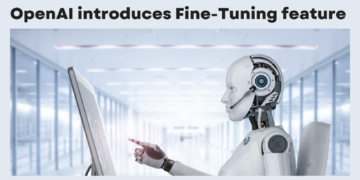In the realm of technological advancement, one concept looms large: Artificial General Intelligence (AGI). AGI represents a milestone in Artificial Intelligence research, signifying the development of machines capable of performing any intellectual task that a human can. Tech leaders are showing in heated debates surrounding its definition, timeline, and potential consequences.
Artificial General Intelligence (AGI)
AGI, often hailed as the holy grail of AI, remains a nebulous concept. Defined loosely as the attainment of human-level intelligence by machines, its specifics elude consensus. Some argue that AGI entails machines exhibiting not just proficiency but also comprehension, reasoning, and adaptability across diverse domains. Others contend that AGI merely signifies the ability to perform tasks on par with humans, without delving into the intricacies of consciousness or understanding.
Billionaire entrepreneur Elon Musk’s bold predictions have thrust AGI into the spotlight. Musk’s assertion that AI will surpass individual human intelligence by the following year and outstrip collective human intellect by 2029 has ignited fervent discussions. While his timeline may appear ambitious to some, Musk’s warnings about the implications of AGI resonate deeply in tech circles.
What do Tech Leader think about AGI
The discourse surrounding AGI features a cacophony of voices, each offering unique insights and perspectives:
- Yann LeCun’s Skepticism: Meta’s Chief AI Scientist, Yann LeCun, adopts a cautious stance, questioning the trajectory of current AI models towards AGI. Highlighting the limitations of existing systems, LeCun emphasizes the necessity of distinguishing between AI advancements and true AGI.
- Sundar Pichai’s Pragmatism: Google CEO Sundar Pichai strikes a pragmatic chord, downplaying the semantics of AGI while acknowledging the transformative potential of AI technologies. Pichai underscores the imperative of addressing the ethical and societal ramifications of AI’s capabilities, regardless of its categorization.
- Sam Altman’s Optimism: OpenAI’s CEO, Sam Altman, exudes optimism about AGI’s prospects, portraying it as a paradigm-shifting force for humanity. Altman envisions AGI as a catalyst for societal progress, heralding a future where intelligence becomes more accessible and egalitarian.
Challenges and Opportunities Ahead
As the AGI narrative unfolds, a myriad of challenges and opportunities come to the fore:
- Ethical Dilemmas: The advent of AGI raises profound ethical quandaries, from concerns about job displacement to the specter of autonomous decision-making with far-reaching consequences. Mitigating these risks requires robust frameworks for AI governance and accountability.
- Socioeconomic Implications: The democratization of intelligence ushered in by AGI could reshape labor markets, education systems, and societal structures. Striking a balance between innovation and equity becomes imperative to ensure inclusive growth in an AI-powered world.
- Technological Hurdles: Achieving AGI necessitates surmounting formidable technical hurdles, including the development of versatile learning algorithms, nuanced understanding of human cognition, and the ethical deployment of advanced AI systems.




























